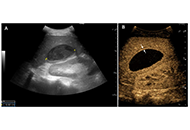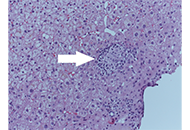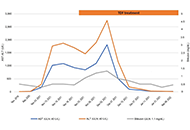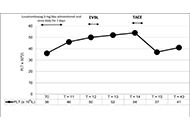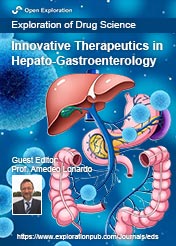
Innovative Therapeutics in Hepato-Gastroenterology
Guest Editor
Prof. Amedeo Lonardo E-Mail
Professor of Internal Medicine at the School of Specialization in Allergology and Clinical Immunology, University of Modena and Reggio Emilia, Italy
Research Keywords: NAFLD; NASH; MAFLD; gastroenterology; metabolic syndrome
About the Special lssue
Under-recognized but high rates of financial burden and psychological distress associated with increased health care utilization and poor health-related quality of life have been reported, particularly among patients with hepatic encephalopathy, ascites, liver cancer, hepatic failure, and liver transplantation recipients.
Similarly, conditions affecting the GI tract, such as bleeding, cancer; gastroesophageal reflux disease; malabsorption; irritable bowel syndrome; functional dyspepsia; peptic ulcer disease; infectious colitis and enteritis; and inflammatory bowel disease are often associated with increasing healthcare expenditures resulting from complications which require frequent hospitalization, with expensive therapies being delivered as the standard of care in many areas.
The burdening economics of many of the above conditions affecting the liver and the GI tract, therefore, calls for novel therapeutic approaches that may improve personalized clinical practice, patient life expectancy and quality of life.
With the above backset, this Special Issue is specifically devoted to examining the rationale and cost-effectiveness ratio of standard of care approaches. It also explores areas of innovations spanning from lifestyle changes involving diet and physical exercise to drug treatment, gene therapy, surgical, endoscopic techniques, and interventional radiology to be delivered to patients with either hepatic diseases or conditions of the GI tract, both acute and chronic.
Our Special Issue has no restrictions for contributors based on patient age (geriatrics, pediatrics, and adulthood) geographical area; drug treatment vs. lifestyle changes; endoscopic treatment; interventional ultrasonography and radiology; gene therapy; surgery; medicinal chemistry; pharmaco-economics; phytopharmaceuticals and alternative medicine.
No publication charges will be sustained by Authors. Each of the following types of articles are acceptable: NARRATIVE REVIEWS; MINI-REVIEWS; META-ANALYSIS; CASE REPORTS; ORIGINAL STUDIES (both basic science and clinical) pertaining to cancer and benign conditions affecting the liver, pancreas and gastrointestinal tract.
References
Ufere NN, et al. Financial burden in adults with chronic liver disease: A scoping review. Liver Transpl. 2022 Dec;28(12):1920-1935.
Peery AF, et al. Burden and Cost of Gastrointestinal, Liver, and Pancreatic Diseases in the United States: Update 2018. Gastroenterology. 2019 Jan;156(1):254-272.e11.
Park KT, Bass D. Inflammatory bowel disease-attributable costs and cost-effective strategies in the United States: a review. Inflamm Bowel Dis. 2011 Jul;17(7):1603-9.
Keywords: pharmacotherapeutics; diet; gut microbiota; endoscopy; gene therapy; interventional radiology; personalized medicine; physical exercise; ultrasonography; surgery
Published Articles
